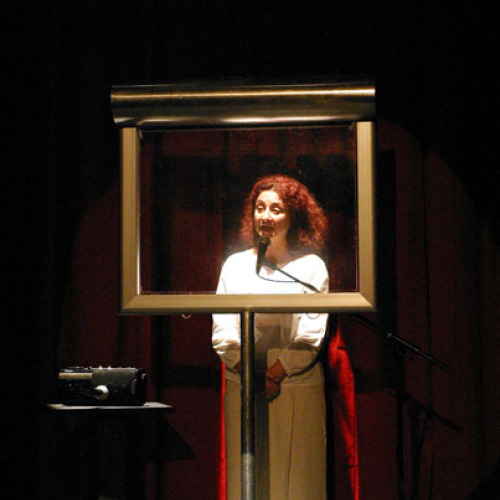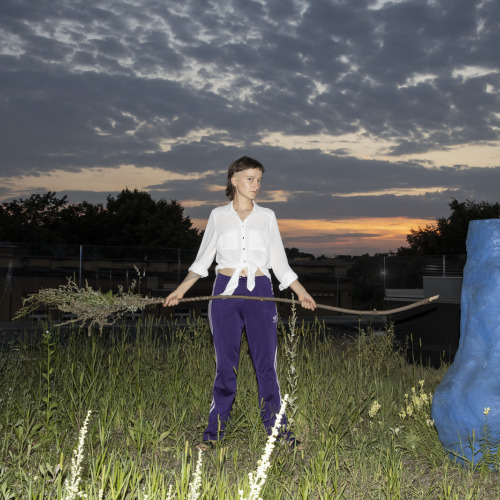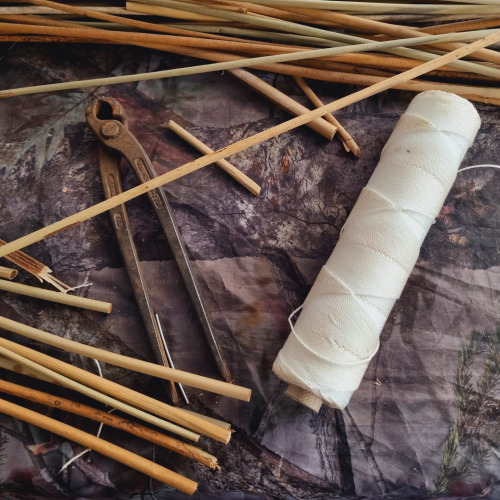
Biokhraphia
"After death, everyone interviews one's self, one asks
questions and one answers one's questions. Why not record all the questions
I've always wanted to ask myself, but haven't been able to answer." (Biokhraphia)
Rewind (when you wish for a different past). Fast Forward
(when the present is no longer comfortable). Play (and hope for a better
future).
Rewriting one's own past might appear to be a game. When the rule of 'not
getting into details, but keeping busy with generalities' is not respected, the
process becomes painful. 'Truths' dissolve. 'Fictions' take their place.
Linearity is broken and the vicious cycle never ends.
Coming from Beirut, real-life partners Lina Saneh (b. 1966) and Rabih Mroué (b.
1967) bring their Biokhraphia (2002) with - a short performance shifting one's
perspective on what a biography might be. As a visible, legible and complete
past archive, with a clear beginning and ending, 'biography' is found as
unsuitable for recording the individual (victimised) life in places tyrannised
by diverse powers including state, law, religion, tradition. Therefore a new
genre is being created, both as a term and as an artistic form. Biokhraphia
splits into bio (Greek 'life'), khara (Arab 'shit'), and phia (Arab 'within'),
bringing 'shitty biography' to life. Metaphorically, the title refers to crises
in art, media world, political and private life in contemporary Lebanon, or in
other words, troubles in defining (the construction of) Arab identity.
Furthermore, Biokhraphia represents a farewell to the past in order to start
everything again from (a lucky) scratch. As many times it takes to start at the
beginning again.
Living in a country with a limited formal theatrical tradition, Saneh and Mroué
use theatre to call into question the fundamental roles of theatre and
performer, simultaneously creating an innovative representational form. Faced
with a fictitious interview and extra-ordinary conversation, the audience might
find itself confused about who is who among the three artist's selves (herself,
audio and video) or whom they represent. Perhaps the social, private and
artistic selves, although they exchange their 'bodies' throughout the play.
None of them, however, can escape the political - especially the shadow of
civil war.
Biokhraphia seems to have reached its culmination at the very moment when art
(the video projection of the artist) takes the artist's place and itself
becomes challenged. As a response to 'censorship torture', art shoots itself.
But it gets a second chance. And survives.
Confronted with and accused by the voice of 'generational bankruptcy' (literal
and spiritual), the artist finds a clever way out - through a surprise.
Giving her soul away for art? Making a living? Or claiming it as art?
("I'm acting. I'm acting.")
Milijana Babić
Text, directed by: Lina Saneh & Rabih Mroué
Stage design: Ali Cherry
Performed by: Lina Saneh
Production: Ashkal Alwan, Beirut
Arabic, overtitled in Slovene
Translated by: Mohsen Al Hady
Organisation: City of Women
In co-operation with: Cankarjev dom








